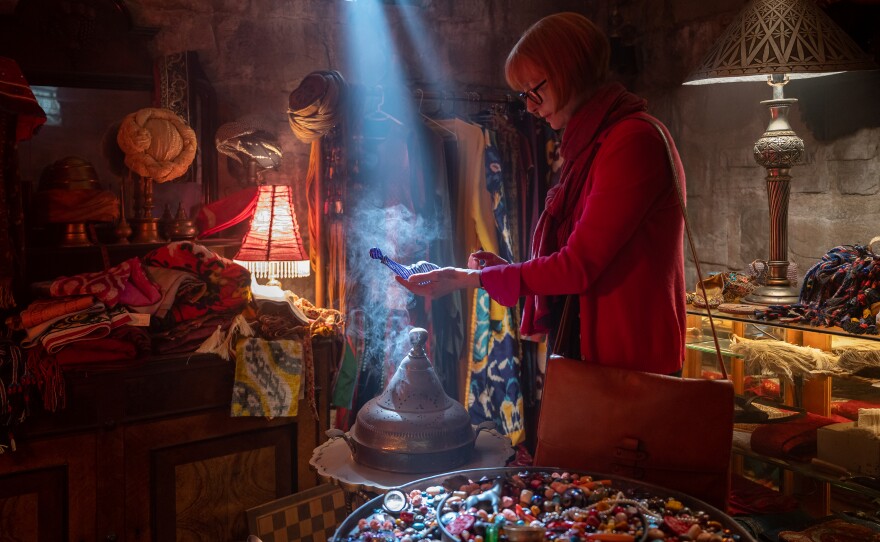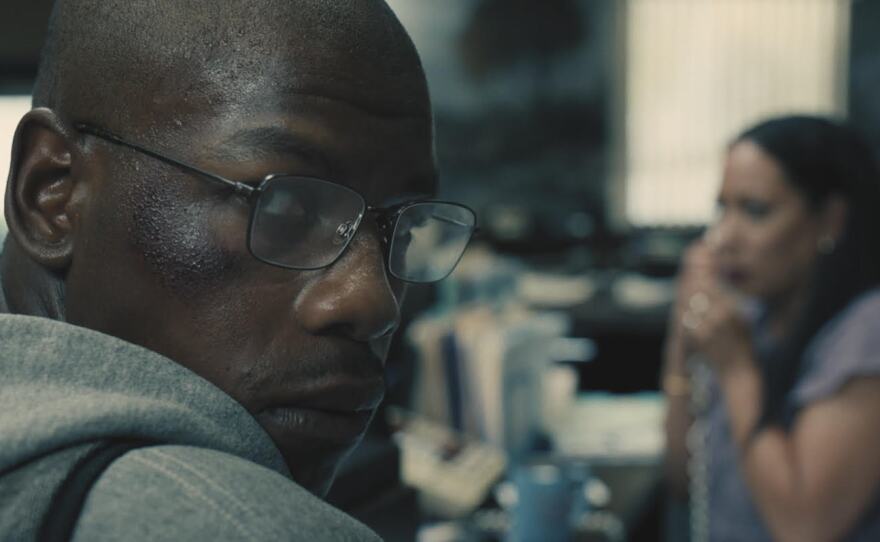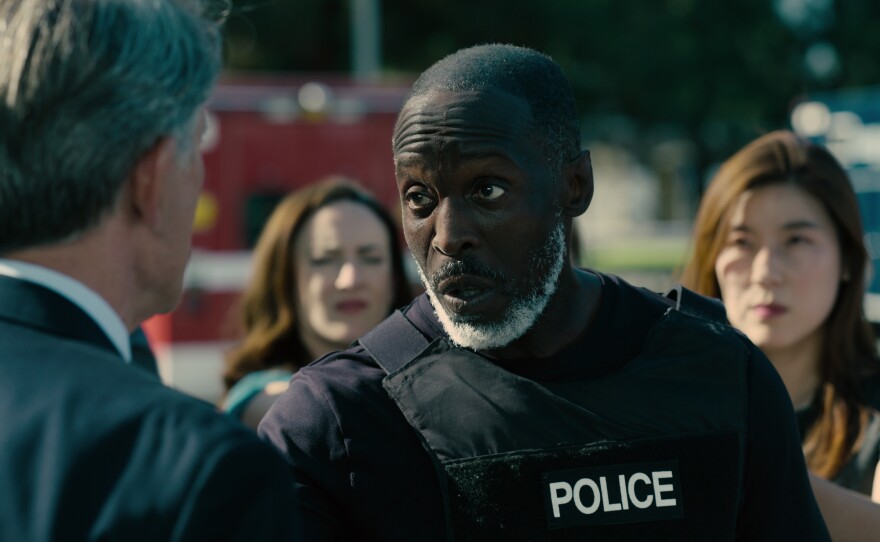This weekend you can choose from the fantastical worlds of aliens and genies or the reality of a U.S. Marine facing an indifferent veterans administration as a trio of new movies open in cinemas.
'Three Thousand Years of Longing'
It feels like a millennium of giddy anticipation waiting for George Miller’s new film starring Tilda Swinton and Idris Elba. But "Three Thousand Years of Longing" is finally here and it serves up a story about stories.

Alithea (Tilda Swinton) introduces herself and tells us she has a story to share, one that is true but which might be better understood in the context of a fairy tale. Truth and fantasy become enticingly intertwined as she recounts how she released a Djinn (or genie played by Idris Elba) from a mysterious old bottle and how he posed the classic question, "What will you wish for? What is your heart’s desire?"
But Alithea knows all too well the dangers of such an offer. Her life's work is studying stories and their meaning, and she points out, "There is no story about wishing that is not a cautionary tale."
Miller’s film — based on A.S. Byatt's book "The Djinn in the Nightingale's Eye" — is a cautionary tale but one fueled by wild imagination and intoxicating visuals that pop off the screen. Miller, who is probably best known for his "Mad Max" films, knows how to capture both the epic scale of a story spanning centuries and the tiny details that make the stories personal.
The film also builds unexpectedly rich emotional layers thanks to the dream casting of Swinton and Elba. They deliver a fairy tale for adults that subverts expectations by giving us a magical Djinn who's more vulnerable to messy human emotions than the woman he’s trying to manipulate into making wishes so he can be released from a curse.
"Three Thousand Years of Longing" is a glorious valentine to the power stories have to teach us about empathy and the human condition. See it in a cinema where Miller’s bold vision has the expanse needed for such an epic yet intimate tale.

'Alienoid'
Then a South Korean sci-fi tale catapults from outer space to give us a world where aliens have been using earth as a jail with the criminals imprisoned inside human bodies. Then guards travel back and forth in time to make sure they don’t escape.
Choi Dong-hoon's "Alienoid" also has dosas (a kind of sorcerer), droids, time traveling SUVs, lots of tentacles, a divine blade everyone is after, and a young girl on a mission.
The story is too crazy to fit into one film so this is actually only part one of a time-jumping saga that audaciously mixes period martial arts action with modern sci-fi and still makes room for broad comedy. It may be confusing and convoluted at times but it’s also wildly engaging and ridiculous fun. Plus the effects and production design are imaginative.
With "Alienoid," you can either complain about all its inconsistencies and unevenness or you can choose to surrender to its lunacy and just enjoy. When a film is made with this much gusto and unpretentious energy, I just surrender. I hope part two arrives soon.

'Breaking'
If you’re looking for something more grounded in reality then John Boyega gives an intense and heartbreaking performance as a former Marine fed up with the VA's failure to provide the support they promised.
"Breaking" is based on the true story of Brian Brown-Easley, who had served as a Marine in the Middle East and suffered from PTSD and a physical disability as a result. When the VA fails to make its usual disability payment, he is in danger of ending up on the street. So he decides to take hostages at a bank in the hopes of getting the media to highlight his problems. When the film premiered at Sundance earlier this year (which was when I saw it) it was called "892," the amount of money he claimed the VA owed him. So he had no intention of robbing the bank but rather only in getting what he felt was owed to him.
"Breaking" has some structural similarity to "Dog Day Afternoon," which was about a real-life bank robbery in which the hostages felt some compassion for the robbers. But "Breaking" is more a kindred spirit to the Denzel Washington film, "John Q." Both of those films give us good men driven to make desperate choices in order to call attention to infuriating inequities. In the case of "John Q" the issue was health care.
While the overt focus of "Breaking" is on how the VA mistreated Easley, it also makes another point about how law enforcement places a greater emphasis on resolving situations with firepower and violence than negotiation. The film echoes the issues raised at the height of the 2020 protests prompted by the murder of George Floyd. At that time there were calls for defunding the police in order to shift funds from police to social services (which can address such underlying issues as mental health, addiction, and homelessness) in order to bring in people who can de-escalate a situation like the one Easley was in. The film shows a negotiator being brought in but not really being given a chance to resolve the situation.
Boyega is making some smart film choices (see also his work in "Small Axe") and it’s great to see him grow as an actor. The film also marks the last performance of the always outstanding Michael K. Williams who plays the frustrated negotiator.







